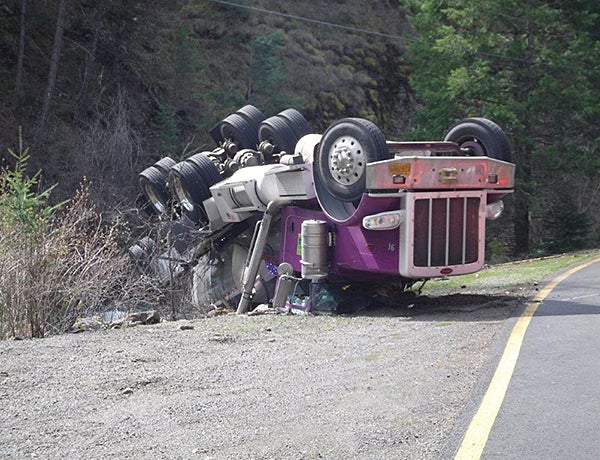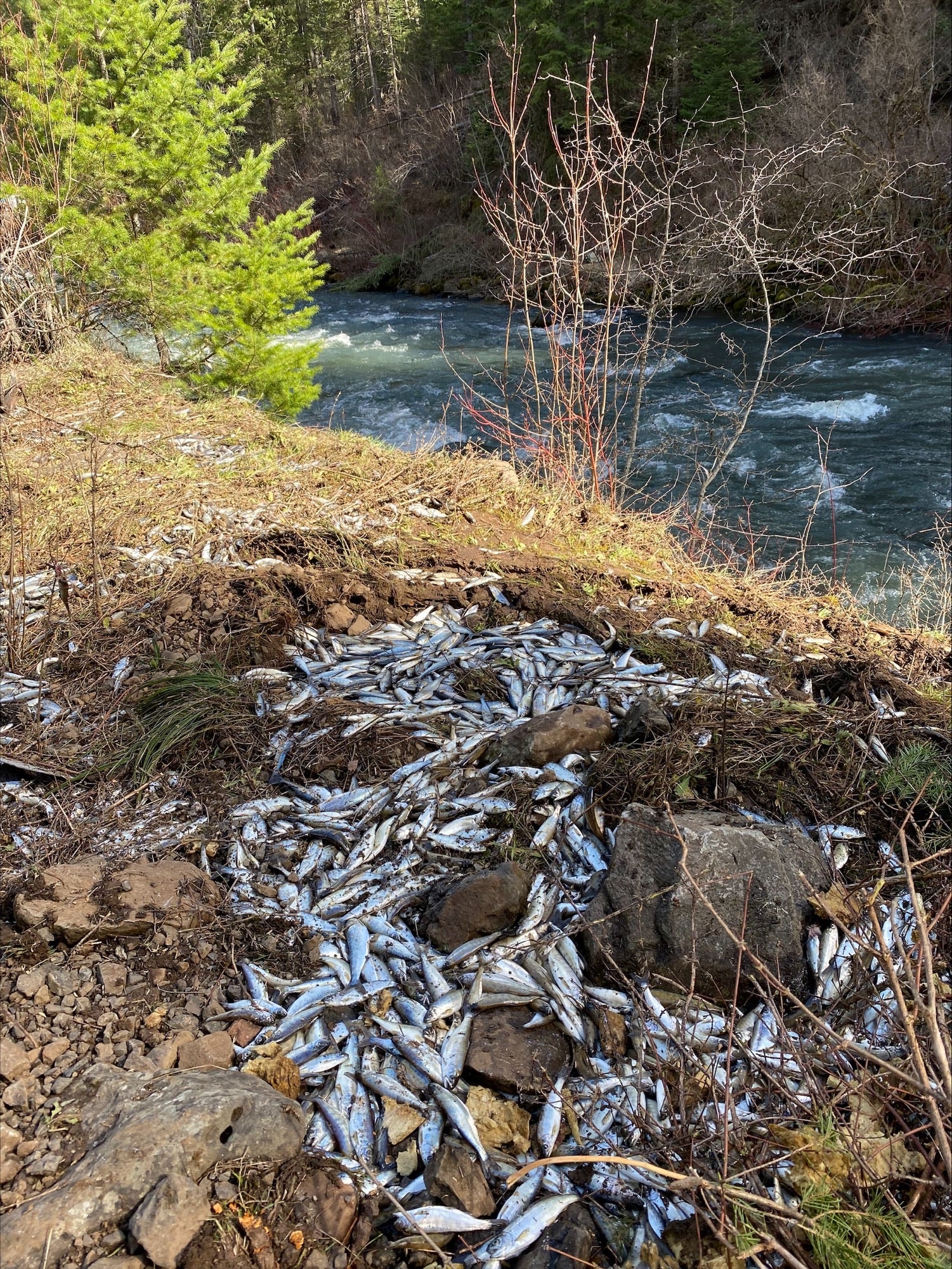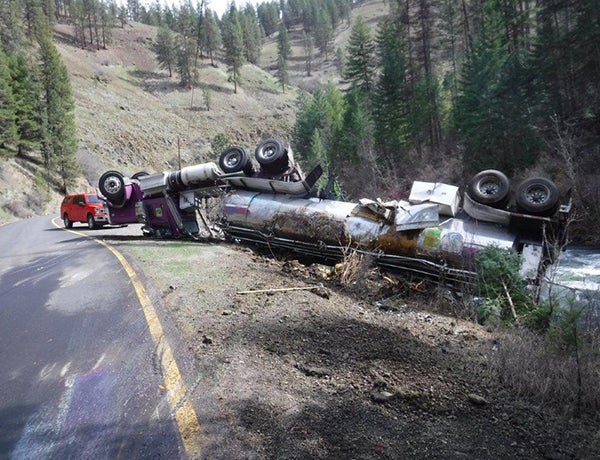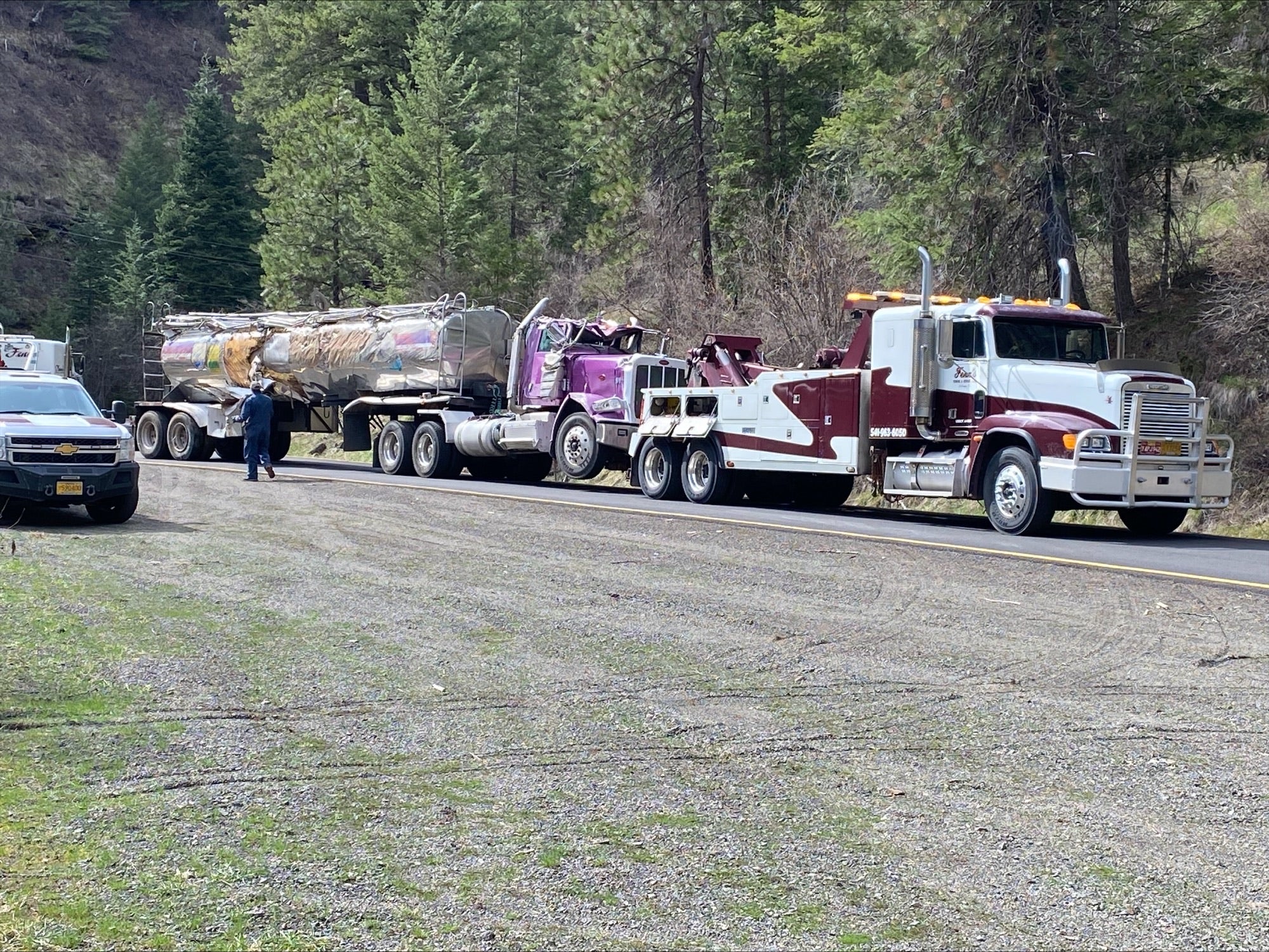Swim to freedom! Truck carrying 100,000 live salmon crashes – tipping fish into creek
77,000 fish made an unexpected stop in an Oregon creek as their truck had an accident on a sharp bend

An Oregon fish tanker truck carrying around 102,000 live salmon overturned on a sharp bend – but as fate would have it, the vehicle came to a stop near a creek, causing thousands of the fish to make a great escape into the water.
Around 77,000 live Chinook smolt salmon flopped into the creek and swam away in their masses after the 53-foot truck they were being transported in crashed in northeast Oregon on 29 March, the Oregon Department of Fish and Wildlife (ODFW) said in a statement.
Unfortunately, not all the salmon were as lucky, as 25,529 of the fish perished after the truck rolled, and their carcasses were recovered in the tanker or on the streambank.

As for the driver, who works for the department, they managed to get out of the crash with only minor injuries.
The accident occurred when the giant truck drove around a sharp corner, causing the vehicle to roll onto the passenger side, skidding on its side on the pavement then going over a rocky embankment, rolling over onto its roof.
Luckily for most of the salmon in the load, the accident happened alongside Lookingglass Creek, allowing them to tip into the water.

The salmon’s intended destination was supposed to be the Imnaha River, in the Wallowa-Whitman National Forest. The total salmon lost represents around 20 per cent of the fish that authorities are planning on releasing into the river this year.
The fish have been raised to bolster the wild population of the river, which is currently listed as a threatened area.
Due to the loss, fishery managers believe that around 500-900 fewer adults will return to the river in 2026 and 2027.
However, all is not lost, as the accident has inadvertently replenished the stocks in a different body of water, albeit not the one they intended – Lookingglass Creek is a tributary of the Grande Ronde River.

The 77,000 fish that made their rush to escape into the creek as the truck crashed will likely return there and produce approximately 350-700 adults.
"This should not impact our ability to collect future brood stock or maintain full production goals in the future,” Andrew Gibbs, ODFW fish hatchery coordinator for Eastern Oregon, said in a statement.
Mr Gibbs added that the department is “thankful the ODFW employee driving the truck was not seriously injured.”
The salmon were supposed to acclimatise in the Imnaha River for a few days before setting off on a 650-mile journey to the Pacific Ocean , where they will forage for a few years before returning to the river, The New York Times reported.

After that, they use a kind of scent memory to set out on a reverse journey back to the river.
“They kind of smell their way back,” Mr Gibbs told the newspaper. “It’s an incredible life history.”
The Union County Sheriff’s Department responded to the scene immediately after the accident and assisted with on-scene assessments and vehicle recovery operations.
The Nez Perce tribe and the Confederated Tribes of the Umatilla Indian Reservation, the fishery co-managers, were notified, and the Nez Perce tribe responded and helped with collecting and counting the dead fish.
A small amount of diesel fuel was quickly contained and did not result in a hazardous material spill response.
Join our commenting forum
Join thought-provoking conversations, follow other Independent readers and see their replies
Comments
Bookmark popover
Removed from bookmarks